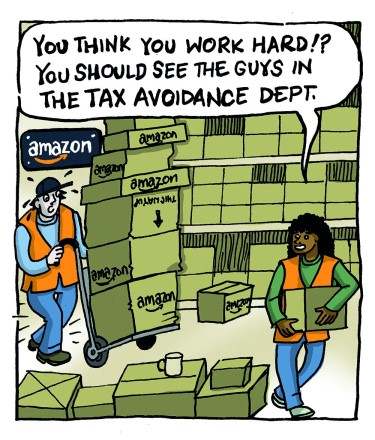Possible solutions
For decades, universities have relied on external providers to manage their supply chains and automated purchasing requirements. In the UK, an organisation called Crown Commercial Services (CCS) is the biggest buying group for all public sector organisations.
Earlier this year CCS launched a 'tail spend solution' that could help universities make more responsible
spending choices. Both suppliers that have been awarded contracts under the framework – Unite and OT Group – had to meet official sustainability standards and prove that their services benefit “society and the economy, while minimising damage to the environment.”
Unite, which has a procurement portal called Mercateo and OT group whose version is called SmartPad, could both help universities reduce their reliance on Amazon.
Progress in some places
A number of Amazon-wary institutions have also limited purchases through the company by honing their card spending. Three and a half years ago Satchwell, from De Montfort University and quoted above, convinced his executive team to introduce a directive to restrict spending on Amazon, eBay and Airbnb over health and safety concerns. He said that this gave him an opportunity to talk to staff and academics about the ethics of buying on Amazon. Under the new arrangements, procurement card holders at the university can only purchase through Amazon where there are no viable alternative options.
Alongside this Satchwell’s team said that all voucher awards should go through Love to Shop, a gift card that can be spent at a range of retailers, including Amazon.
“If they want to [shop at Amazon], the recipient is making that ethical choice and commercial choice – we’re not doing so on their behalf and endorsing a big business with questionable ethics sitting behind it.”
University of Wolverhampton has also introduced payment card restrictions to limit its Amazon spending and avoid products by third-party sellers on the platform.
And University of the West of Scotland is planning to review its card spending following a significant increase in transactions with larger online retail organisations, such as Amazon, over the past two years.
“During the Covid-19 pandemic, University of the West of Scotland encouraged the use of Corporate Procurement Cards for transactions under £1,000 to support the successful rapid transition to flexible and hybrid delivery across our remote five campus network in the UK,” a university spokesperson said. “A procurement review will be carried out in September 2022, to analyse which online retail organisations are currently being used, and the appropriateness of continuing to use specific suppliers.”


